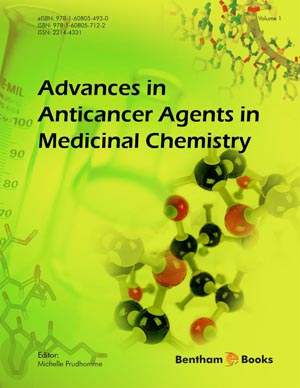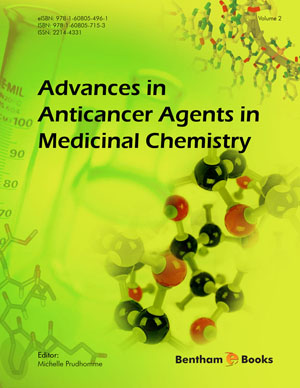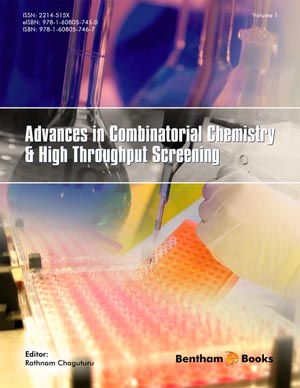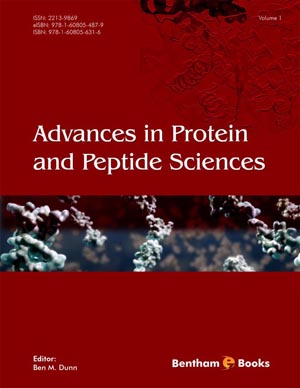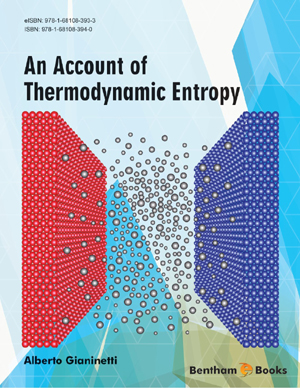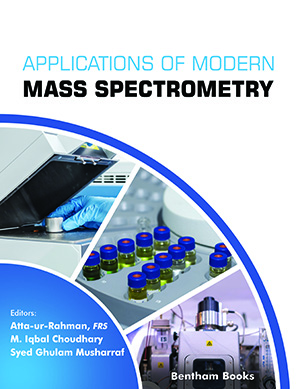Book Volume 4
Asymmetric Synthesis of α-Unsubstituted β-Hydroxy Acids
Page: 3-35 (33)
Author: Jan Spengler and Fernando Albericio
DOI: 10.2174/9781608054756113040003
PDF Price: $30
Abstract
α-Unsubstituted β-hydroxy acids (3-hydroxycarboxylic acids) are constituents of various natural products with pharmacological and other technical properties of interest. They are also important intermediates in organic synthesis. This article reviews various possible routes for asymmetric synthesis of enantiopure or enantiomerically enriched α-unsubstituted β-hydroxy acids.
Rhodium-Catalyzed Hydroformylation Promoted by Modified Cyclodextrins: Current Scope and Future Developments
Page: 36-63 (28)
Author: Frédéric Hapiot, Loïc Leclercq, Nathalie Azaroual, Sophie Fourmentin, Sébastien Tilloy and Eric Monflier
DOI: 10.2174/9781608054756113040004
PDF Price: $30
Abstract
The contribution of modified cyclodextrins in aqueous biphasic rhodiumcatalyzed hydroformylation of higher olefins is tackled, taking into account previous results and new experimental data. The role of the cyclodextrins is emphasized and discussed through the analysis of numerous parameters. Development outlooks are also presented.
Application of Bismuth(III) Reagents and Catalysts to the Synthesis of Heterocyclic Compounds of Pharmaceutical Interest
Page: 64-181 (118)
Author: Jorge A. R. Salvador, Rui M. A. Pinto and Samuel M. Silvestre
DOI: 10.2174/9781608054756113040005
PDF Price: $30
Abstract
Over the last years, bismuth(III) salts have emerged as useful reagents in organic synthesis. Systems comprising of bismuth(III) salts are generally catalytic and involve a relatively non-toxic metal. These features are of great interest in the area of green and pharmaceutical chemistry. The construction and/or functionalization of heterocyclic compounds is of major interest, since a large number of natural compounds and known drugs are heterocycles. This Chapter will focus on the applications of bismuth(III) reagents and catalysts in heterocyclic chemistry, as applied to the synthesis of compounds of pharmaceutical interest. In addition to the inclusion of five- and sixmembered heterocycles, five- and six-membered heterocycles fused to one benzene ring, as well as other heterocyclic compounds, the application of bismuth(III) salts to chemistry of carbohydrates, nucleosides and β-lactams will also be considered.
Applications of Dioxomolybdenum(VI) Complexes to Organic Synthesis
Page: 182-266 (85)
Author: Roberto Sanz and María R. Pedrosa
DOI: 10.2174/9781608054756113040006
PDF Price: $30
Abstract
Due to their relevance in biological processes, molybdenum-catalyzed oxygentransfer reactions have attracted considerable interest. In this context, some dioxomolybdenum(VI) complexes, with the cis-[MoO2]2+ core, that mimic oxotransferases, have been found to be efficient catalysts for several oxidation and reduction reactions in organic synthesis. More recently, the utility of these molybdenum(VI) complexes has been extended to other processes such as hydrosilylation reactions and, due to the amphoteric character of the Mo=O unit, to some Lewis acid-Lewis base conjugate catalyzed reactions.
Reactions of Nitrogen Derivatives of Carbonyl Compounds with Phenyliodoso Diacetate in Organic Synthesis
Page: 267-316 (50)
Author: Antigoni Kotali, Elvira Kotali, Ioannis S. Lafazanis and Philip A. Harris
DOI: 10.2174/9781608054756113040007
PDF Price: $30
Abstract
The progress that has been made in organic synthesis via the reactions of nitrogen derivatives of carbonyl compounds with phenyliodoso diacetate is presented. The synthesis of various aliphatic, alicyclic and heterocyclic compounds is discussed. Emphasis is given in a synthetically useful new transformation of hydroxyl into a carbonyl group that leads to high yield synthesis of 1,2-diacyl-substituted compounds.
Streamlining Organic Free Radical Synthesis through Modern Molecular Technology: from Polymer Supported Synthesis to Microreactors and Molecular Reactors
Page: 317-344 (28)
Author: V. Tamara Perchyonok
DOI: 10.2174/9781608054756113040008
PDF Price: $30
Abstract
Free radicals are ubiquitous, reactive chemical entities. Free radical reactions are an important class of synthetic reactions that have been traditionally performed in organic solvents. In recent years, the number of reports of free radical reactions that use water and alternative media such as supercritical CO2, ionic liquids, fluorous solvents and in solid state has increased [1-3]. Radical reaction is one of the most useful and flexible methods for organic reactions in alternative media, because most of the organic radical species are stable in water and alternative media, and they do not react with water or unusual media. There is a specific focus on C-H and C-C bond forming reactions as they represent the major classes of the most useful and utilized class of free radical reactions in “Streamline Free Radical Organic Synthesis”. In addition several important electron transfer processes as well as free radical non-chain synthetically useful reactions in high throughput environment and applications will be discussed with the specific emphasis on mechanistic and application aspects of these transformations. Finally the role of cyclodextrins as a new class of molecular reactors is discussed and the novel synthetic applications in streamlining free radical chemistry in batch reactors, flow-through reactors and “tea bag” reactors is described in detail.
Emerging Role of Room Temperature Ionic Liquids (RTILs) in Carbohydrate Chemistry
Page: 345-408 (64)
Author: Virendra Prasad, Divya Kushwaha, Kunj B. Mishra, Lallan Mishra and Vinod K. Tiwari
DOI: 10.2174/9781608054756113040009
PDF Price: $30
Abstract
The past 10 years has seen a proliferation of the number of ionic liquids that have extensively been used in organic synthesis as solvents and/or catalysts in chemical as well enzymatic reactions, simply due to their interesting and attractive features viz. simple handling, tunable properties, benign environmental character, catalytic activity, and excellent recyclability, whereas their interest in various different branches of science is expanding exponentially. Carbohydrates-containing molecules are identified to play pivotal roles in various pathologically and physiologically important biological processes including cellular recognition, adhesion, migration, invasion, communication, bacterial and viral infection, tumor metastasis etc. and thus about clear understanding of role of sugars in these important biological events has led to the increased demand for significant amounts of carbohydrate based molecules for complete chemical, biological, medicinal, and pharmacological investigations. Therefore, tremendous efforts have been made to develop novel and facile procedures for the synthesis of sugar based molecules of great biological interest. In the last 10 years, room temperature ionic liquids (RTILs) have been emerged as promising solvents for modification of carbohydrates into desirable scaffolds; however, there is lack of recent and concise reports dealing with the RTILs in the field of carbohydrate chemistry particularly, in relevance to dissolution and functionalization, and glycosylation. This chapter highlights the rapid increase in novel applications of discovered RTILs in carbohydrate chemistry.
Synthesis of Trifluoromethyl-Substituted Fused Bicyclic Heterocycles and their Corresponding Benzo-Fused Analogues
Page: 409-455 (47)
Author: Ahmed H. M. Elwahy and Mohamed R. Shaaban
DOI: 10.2174/9781608054756113040010
PDF Price: $30
Abstract
Development of efficient routes to many kinds of fluorine-containing heterocycles is an attractive area of research since these compounds are now widely recognized as important organic materials for their potential use in medicinal and agricultural scientific fields. This review survey research works on trifluoromethylsubstituted fused bicyclic heterocycles and their corresponding benzo-fused analogues over the last twelve years. Different approaches for the synthesis of such systems are discussed.
Introduction
Advances in Organic Synthesis is a book series devoted to the latest advances in synthetic approaches towards challenging structures. It presents comprehensive articles written by eminent authorities on different synthetic approaches to selected target molecules and new methods developed to achieve specific synthetic transformations. Contributions are written by eminent scientists and each volume is edited by an authority in the field. Advances in Organic Synthesis is essential for all organic chemists in the academia and industry who wish to keep abreast of rapid and important developments in the field.














